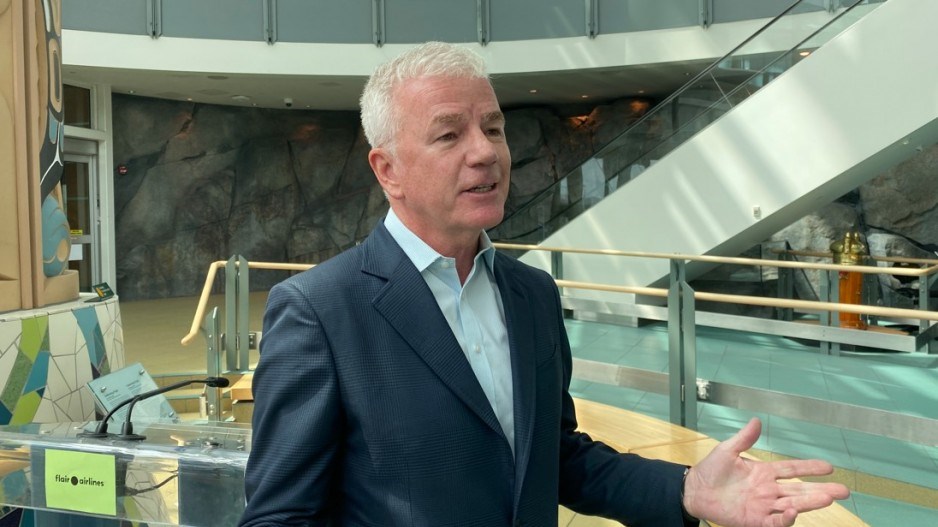Ultra-low-cost airline Flair Airlines today announced that it is leasing two new Boeing 737 Max aircraft, upping its fleet to 20 planes, five of which will be based in Vancouver this summer.
Having more planes should enable the airline to have more flexibility, and be better prepared to improvise if glitches arise in order to avoid delays and flight cancellations.
The news comes as speculation had been that the airline was in trouble, and could see a reduction in its fleet.
Lessor Airborne Capital Ltd. in March suddenly confiscated four of Flair's 22 planes because the airline was behind in lease payments, prompting a wave of flight cancellations and customer complaints. Industry insiders at the time told BIV that they would not fly on Flair because they feared that there would be cancellations or delays.
Leases with the two new planes are with SMBC Aviation Capital. One of the planes was delivered yesterday, while the second one is expected to arrive this summer.
Flair's CEO Stephen Jones today told BIV that his goal of having 50 planes has not changed, even though he has loosened his timeline.
"The target date [to have 50 planes] has always been 2025," said Jones. "It's going to move now. I think it would be more like 2026 or 2027, just with the slight slowing of the growth this year, but the target remains the same."
Flair badly needs enhanced flexibility in managing its fleet because it is generating more customer complaints on average than is any other airline.
In the January through March period, Flair had the most complaints per 100 flights than did any other airline in Canada. Flair passengers on more than 20 per cent of the airline's flights filed complaints to the Canadian Transport Agency (CTA), according to the agency.
In all, Flair generated 20.9 complaints for each 100 flights, which was more than the 17.4 complaints per 100 flights that Sunwing generated, and the 16 complaints per 100 flights that Swoop instigated.
Having the most average complaints per flight was not a new thing for Flair, as the airline had ranked first or second on per-flight customer complaints in multiple quarters in 2022.
Jones, however, called the CTA's data "misleading" because his airline had far fewer total complaints than other airlines.
He explained that the January through March time period included deep cold spells in Vancouver and across the country and the problems that Flair had with Airborne Capital.
"The period is, you know, now history, but it included a lot of difficult times for the whole industry," he said while at Vancouver International Airport.
Many of those who complained about Flair said problems were exacerbated by poor communications. To that end, Jones said that his airline had created a "specialist customer service team in Montreal to quickly address the more complex customer service issues."
A press release from earlier this month, however, said that this team began operations in January, which was the start of a period where customer complaints soared.
Jones said that he expected the number of complaints at Flair to decline in part because the airline has recently been more reliably on time than other airlines. He said that in May, 82.1 per cent of Flair flights arrived within 15 minutes of the scheduled arrival time and 99.1 per cent of flights were completed.
He said that while the two new planes his airline is leasing will not be based in Vancouver, they may result in more flights in and out of Vancouver, as capacity is increased throughout the network.
Flair had been based in Kelowna, and it launched its expansion in 2017 by buying the assets of NewLeaf Travel Co., which was a discount flight-seller. It then rebranded those assets as Flair Airlines. It moved its head office to Edmonton the following year because Kelowna did not have sufficient space, former Flair CEO David Tait said at the time.
Jones told BIV today that he lives in Vancouver.
"Most of the senior executives live here [in Vancouver] as well as the commercial team, and increasingly, the digital team."





